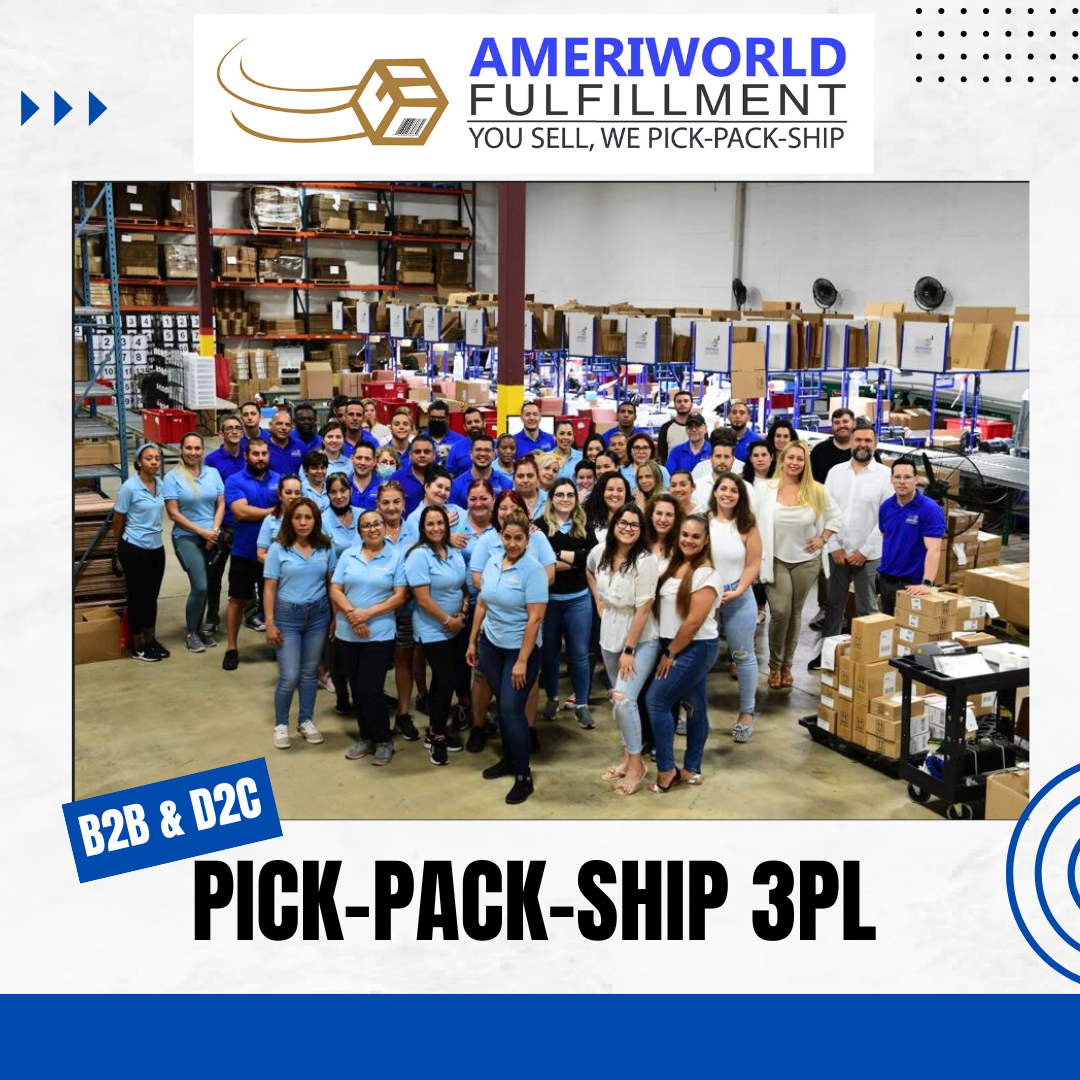
- By: Ameriworld Fulfillment
- Author:
- Cloudya Esther
- Dir. Business Development
As the global marketplace continues to evolve, international companies are increasingly eyeing the United States as a lucrative market for expansion. However, while the potential for growth is undeniable, penetrating the US market presents a unique set of challenges, particularly in the realm of logistics and supply chain management. From parcel shipping intricacies to the critical importance of inventory management and supply chain optimization, international companies face several hurdles as they strive to establish a foothold in the competitive US market.
- Understanding US Parcel Shipping: Bridging the Transatlantic Divide
One of the initial challenges international companies encounter when entering the US market is understanding the intricacies of parcel shipping. Unlike in Europe, where standardized shipping practices may prevail across countries, the US parcel shipping landscape is marked by its own set of regulations, carriers, and pricing structures. From navigating the complexities of domestic shipping zones to comprehending carrier-specific requirements, international companies must invest time and resources to familiarize themselves with the nuances of US parcel shipping.
One notable difference between the US and European shipping practices is the emphasis on speed and flexibility in the US. American consumers expect rapid delivery times and convenient shipping options, which necessitates efficient logistics operations. Additionally, while some European countries may rely heavily on national postal services, the US market boasts a diverse array of private carriers, each with its own strengths and limitations. International companies must carefully evaluate their shipping strategies and partner with carriers that can meet the demands of the US market while optimizing costs.
- Inventory Management: Embracing the Complexity of Unique Barcodes
Effective inventory management is paramount for international companies looking to succeed in the US market, yet it often proves more complex than anticipated. Unlike in some European markets where universal product identification standards may be prevalent, US retailers and e-commerce platforms typically require products to be labeled with unique barcodes. This requirement not only necessitates meticulous attention to detail during the manufacturing and packaging stages but also poses challenges for inventory tracking and management.
International companies must implement robust inventory management systems capable of handling the intricacies of unique barcodes to ensure seamless operations and minimize the risk of fulfillment errors. Furthermore, the proliferation of omnichannel retailing in the US further complicates inventory management, as companies must synchronize inventory levels across multiple sales channels to prevent stockouts and overstock situations.
- On-Time Order Fulfillment: Meeting the Expectations of B2C and B2B Clients
In the era of e-commerce dominance, on-time order fulfillment is of paramount importance for both consumer-facing e-commerce operations and B2B transactions. For international companies penetrating the US market, meeting the expectations of American consumers in terms of order fulfillment speed and accuracy is paramount. delays or errors in order fulfillment can result in dissatisfied customers and damage to brand reputation. Moreover, in the B2B space, retailers often impose penalties for late or incomplete orders, further underscoring the importance of on-time fulfillment.
To mitigate these risks, international companies must prioritize operational efficiency and invest in advanced fulfillment technologies. This may include leveraging automation and data analytics to reorder low-stocked items and optimize warehouse processes, as well as establishing strategic partnerships with reliable logistics providers capable of delivering on-time fulfillment consistently. Having dedicated staff for this market that will exercise a proactive communication with customers and retail partners can help manage expectations and mitigate the impact of unforeseen delays.
- Supply Chain Optimization: The Imperative of Localization
A critical decision for international companies expanding into the US market is whether to localize inventory or continue shipping e-commerce orders from Europe. While maintaining centralized inventory may offer cost savings in terms of warehousing and transportation, it can also result in longer transit times and higher shipping costs, particularly for time-sensitive products.
On the other hand, localizing inventory in the US can improve delivery times, reduce shipping costs, and enhance overall customer satisfaction. By strategically positioning inventory in the US, international companies can minimize transit times and respond swiftly to fluctuations in demand. However, this approach requires careful planning, investment and partnering with an efficient 3PL (third party logistics company), as well as considerations for tax and regulatory compliance.
- Crafting a Robust Market Entry Plan: Avoiding Pitfalls
Entering the US market without a comprehensive plan is akin to sailing into a storm without a compass. Third-party logistics providers (3PLs) often have minimum requirements, making it challenging for companies with limited inventory to establish partnerships. Furthermore, attempting to “test the waters” without adequate inventory or a marketing plan is a recipe for failure.
Instead, companies should develop a robust market entry strategy encompassing thorough market research, comprehensive logistics planning, and targeted marketing initiatives. This includes identifying suitable 3PL partners, aligning inventory strategies with market demands, and crafting compelling marketing campaigns tailored to US consumers.
While the US market holds immense potential for international companies seeking expansion, navigating its complexities requires a strategic approach to logistics and supply chain management. From understanding the nuances of parcel shipping to embracing the intricacies of inventory management, prioritizing on-time order fulfillment and having a relentless commitment to customer satisfaction, international companies must confront and overcome a myriad of challenges to succeed in the competitive US market. By addressing these challenges proactively and investing in robust logistical infrastructure, international companies can position themselves for long-term growth and success in the dynamic landscape of the US market.

Square Ad pick
- Ameriworld Fulfillment is a leading e-commerce logistics company founded by a Spaniard and based in Miami, Florida. Specializing in order fulfillment, warehousing, and distribution services, they offer seamless solutions to streamline operations and enhance customer satisfaction. With 20+ years in the market, their expertise ensures efficient, reliable, and cost-effective supply chain management.
- www.ameriworld.com

















